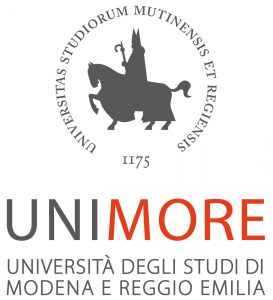Stop alla violenza.
Le donne meritano sicurezza e rispetto in ogni ambito della vita.
Chi contattare?
Forze dell’ordine
https://questure.poliziadistato.it/

Carabinieri
113

Polizia
112
Soccorso sanitario
https://questure.poliziadistato.it/

Pronto soccorso
118
Sostegno sanitario
https://questure.poliziadistato.it/

Numero Anti Violenza e Stalking
1522
Introduzione al progetto
Benvenuti nel nostro sito dedicato al Legal Design: il supporto tecnico giuridico per il Codice Rosso!
Il nostro obiettivo è fornire un approccio innovativo alla comprensione delle novità legislative introdotte dalla legge 19 luglio 2019, n. 69, comunemente nota come “Codice Rosso.” Per rendere la normativa accessibile a tutti, indipendentemente dalla formazione, ci avvaliamo di una combinazione di linguaggio semplice, illustrazioni e argomentazioni giuridiche.
Cosa troverai in questo sito:
- Analisi del Codice Rosso: Ci concentreremo sulla comprensione del testo normativo, offrendo una panoramica delle principali novità introdotte dalla legge del 2019.
- Aspetti nevralgici: Approfondiremo alcuni aspetti cruciali del Codice Rosso, tenendo in considerazione i principali punti di vista giurisprudenziali e dottrinali.
- Impatto della riforma Cartabia: Rifletteremo sull’impatto della recente riforma legata alla legge 27 settembre 2021, n. 134, nota come “riforma Cartabia,” sull’assetto normativo introdotto dal Codice Rosso.
- Norme e fonti correlate: Forniremo una sezione dedicata alle norme e fonti correlate all’argomento, per offrire ulteriori spunti di riflessione e opportunità di approfondimento tematico.
Chi siamo:
Siamo un team multidisciplinare composto da esperti giuridici, grafici e linguisti, con l’obiettivo di rendere la conoscenza giuridica accessibile a tutti. Il nostro approccio unico al Legal Design ci permette di fornire un’analisi approfondita senza rinunciare alla chiarezza e alla comprensibilità.

Prof. Monica Palmirani
Coordinatrice scientifica
Faria Ferooz is a doctoral student of the Law, Science and Technology Joint Doctorate (LAST-JD), in co-tutelle with the University of Luxembourg (Department of Computer Science). She is pursuing her PhD under the supervision of Prof. Monica Palmirani (University of Bologna) and Prof. Christoph Schommer (University of Luxembourg). Her research focuses on legal knowledge modeling of medieval manuscripts and creating a unified ontological framework. Her primary objective is to construct a polymorphic knowledge graph to facilitate comprehensive insights and streamline research access. Furthermore, she contributes to the development of a web system that consolidates medieval manuscript materials on a single platform enriched with captivating insights.
Faria holds a Master of Science degree in Software Engineering from the University of Management and Technology (UMT) in Lahore, Pakistan. She has authored impactful publications in Data Mining, Machine Learning, Computer Vision, and Deep Learning, contributing valuable insights to these domains.

Vittoria Pistone
Esperta Giurista
Vittoria is a legal analyst for Net Service spa, a company specialized in developing software for national and international judicial offices. She carried out research activities in legal informatics at the University of Bologna, dealing with applications of artificial intelligence in the legal field. Vittoria was part of the Legal Design research group at the Alma Mater Research Institute for Human Centered Artificial Intelligence and collaborated in the management of the Er4justice-Next Generation project since 2021. She has contributed toseveral scientific papers and conferences; she obtained the qualification to practice as a lawyer in 2022.

Alessandra Santangelo
Esperta Giurista
Alessandra Santangelo is Research Fellow in Criminal Law at the University of Bologna, where she obtained her Ph.D. in Legal Science in 2020. Since then, she has been working as a Post-doc researcher for national and international projects, being Technical Coordinator of a DG Justice Programme. Among several papers published on Criminal Law journals, she published for Giappichelli eds. the book Precedente e prevedibilità. Profili di deontologia ermeneutica nell’era del diritto penale giurisprudenziale (2022), and for Bologna University Press Uno studio sui delitti di turbativa. La tutela della concorrenza tra tipicità e proporzionalità dell’intervento penale (2023). In 2013, she obtained an LLM, with specialisation in EU Law, from King’s College London.

Yasaman Yousefi
Esperta Giurista
Yasaman Yousefi is a PhD candidate in Law, Science and Technology at the University of Bologna, and a PhD cotutelle in Computer Science at the University of Luxembourg. She holds an LLB from the Azad University of Shiraz, Iran, and an LLM from the University of Milan. She has a strong interest for topics of equality. Her master’s thesis was about gender equality in Artificial Intelligence, and her doctoral dissertation is about algorithmic fairness and discrimination in machine learning systems.

Chiara Cavazzuti
Illustratrice
Vittoria is a legal analyst for Net Service spa, a company specialized in developing software for national and international judicial offices. She carried out research activities in legal informatics at the University of Bologna, dealing with applications of artificial intelligence in the legal field. Vittoria was part of the Legal Design research group at the Alma Mater Research Institute for Human Centered Artificial Intelligence and collaborated in the management of the Er4justice-Next Generation project since 2021. She has contributed toseveral scientific papers and conferences; she obtained the qualification to practice as a lawyer in 2022.

Faria Ferooz
Informatica
Faria Ferooz is a doctoral student of the Law, Science and Technology Joint Doctorate (LAST-JD), in co-tutelle with the University of Luxembourg (Department of Computer Science). She is pursuing her PhD under the supervision of Prof. Monica Palmirani (University of Bologna) and Prof. Christoph Schommer (University of Luxembourg). Her research focuses on legal knowledge modeling of medieval manuscripts and creating a unified ontological framework. Her primary objective is to construct a polymorphic knowledge graph to facilitate comprehensive insights and streamline research access. Furthermore, she contributes to the development of a web system that consolidates medieval manuscript materials on a single platform enriched with captivating insights.
Faria holds a Master of Science degree in Software Engineering from the University of Management and Technology (UMT) in Lahore, Pakistan. She has authored impactful publications in Data Mining, Machine Learning, Computer Vision, and Deep Learning, contributing valuable insights to these domains.

Chiara Catizone
Informatica
Alessandra Santangelo is Research Fellow in Criminal Law at the University of Bologna, where she obtained her Ph.D. in Legal Science in 2020. Since then, she has been working as a Post-doc researcher for national and international projects, being Technical Coordinator of a DG Justice Programme. Among several papers published on Criminal Law journals, she published for Giappichelli eds. the book Precedente e prevedibilità. Profili di deontologia ermeneutica nell’era del diritto penale giurisprudenziale (2022), and for Bologna University Press Uno studio sui delitti di turbativa. La tutela della concorrenza tra tipicità e proporzionalità dell’intervento penale (2023). In 2013, she obtained an LLM, with specialisation in EU Law, from King’s College London.

Giulia Venditti
Informatica
Yasaman Yousefi is a PhD candidate in Law, Science and Technology at the University of Bologna, and a PhD cotutelle in Computer Science at the University of Luxembourg. She holds an LLB from the Azad University of Shiraz, Iran, and an LLM from the University of Milan. She has a strong interest for topics of equality. Her master’s thesis was about gender equality in Artificial Intelligence, and her doctoral dissertation is about algorithmic fairness and discrimination in machine learning systems.
Partner:


Il nostro impegno:
Non pretendiamo di essere esaustivi in questo primo approccio al Codice Rosso e alle tematiche collegate. Siamo consapevoli che alcuni aspetti potrebbero richiedere ulteriori approfondimenti, e ci impegneremo a fornire aggiornamenti e risorse utili per chi desidera esplorare ulteriormente la materia.
Ci auguriamo che il nostro sito diventi un punto di riferimento per coloro che desiderano comprendere meglio il Codice Rosso e i suoi effetti sul sistema giuridico italiano. Siamo entusiasti di condividere con voi il nostro lavoro e vi invitiamo a esplorare le diverse sezioni del sito per approfondire le tematiche che vi interessano di più.
Vuoi approfondire? Leggi il nostro report.
